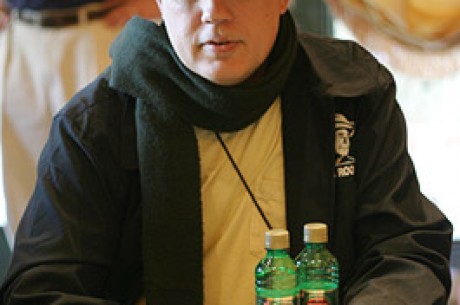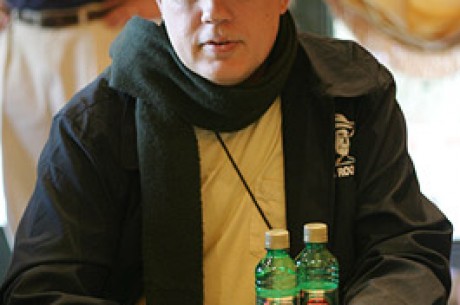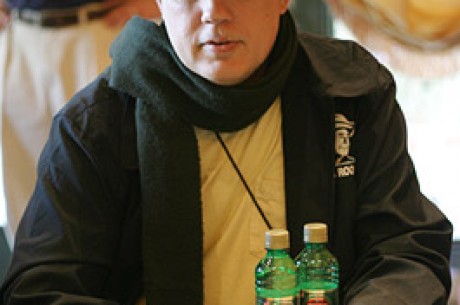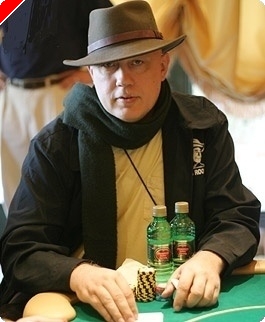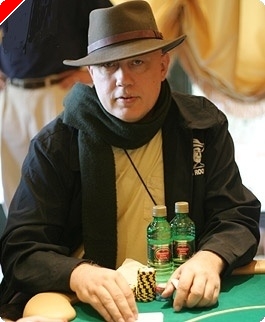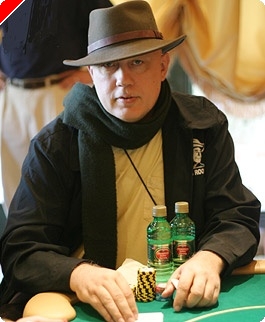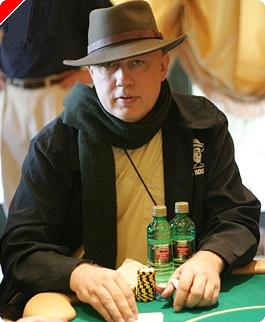Inside the Tour - 46 - Dirty
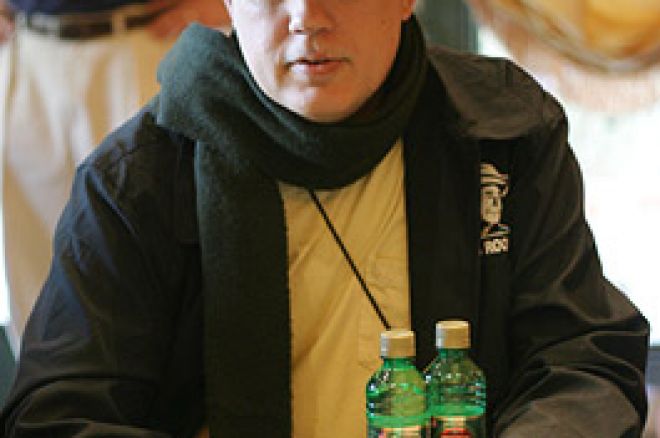
Commentary about 'Dirty Poker' by Richard Marcus and 'How to Cheat your Friends at Poker' by Penn Jillette
I begin with the bottom line; do not buy these books! I will tell you why in the paragraphs that follow but the important thing is to understand that neither author has a clue about poker in the real world, by their own admission. They do know that if they write a book and put 'poker' in the title it will sell well and that suckers like this Dennis will buy them. There are a lot of bad books out there but these are amongst the worst because they purport to tell you something about the seamy side of poker and do not do a good job of delivering any such information.
'How to Cheat your Friends' is a more upfront piece of classlessness, of taking the scumbag road to completion. If you wish to look upwards to trailer trash this is the book for you. The protagonist is a low class hustler without any redeeming qualities, I am surprised he did not become a grave-robber as this would be a much more noble profession for a guy that would steal the coins off your eyes and not bother to kick the dirt back over your exposed corpse. To fill a whole book with this asinine gibberish is plumb dumbfounding! He talks at length about how you should be a complete slimebag if you choose to be a lowlife, not a halfhearted one. Let me give you some quotes to get this unrelenting twaddle into its proper perspective. "I'm a cheat, not a weasel. Advantage play is for weasels. If you're going to cheat, take out your c*** and cheat. That's how you win. I don't follow any rules, even my own." "When I am cheating at a table, I am god. I know things that no one else knows. I see everything and I take care of everybody. If I see one guy starting to get pissed, I dump a pot to him and cheer him up. If another guy is being an {jerk}, I {get} him on the river. I watch everyone's mood. I don't kill the golden goose..." "Everyone knows about marked cards. Marking is a tool that's been around as long as cards have been aroundprobably even longer. When Hollywood know-nothings make movies about cheats, they feature marked cards. Read anything about cards and gambling and you'll see something about marked cards." "if you opened this book and all it said was 'mark the cards with your fingernail' you would have gotten more than your money's worth." "Andy Bloch calls for a new deck every time someone farts near the cards." "I brought down nearly sixteen large with my partner's help. A split with my partner gave me eight grand, which is a good night's work. Splitting town with all of it would be an even better idea. So that's what I did." "If smoking is better for your game? Smoke. If a lighter works for you? Smoke." "when the first gun came through the door, I grabbed as much money as I could and ran out the back before the hicks knew what was happening." "The guys are in the living room playing their pissant little game, and before you even shout 'Hi. Boys!' you see the host's wife has left her purse on a small table in the foyer. No one's there, so you take a little peek into her wallet. Six hundred bucks cash. That's more than you'll ever clear out of this game. You grab the whole wallet, stuff it in the front of your pants, grab your coat, and leave. You never talk to any of the players again and you get out of town right away."
What a land of fairytales this character Dickie lives in! You grab a few hundred and change your life whenever you can, although at other points you are the great imposter who spends years setting up a situation. This is not only incongruous, it is schizophrenic. Perhaps he has that extra chromosome? Then Chapter 18 happens and in case you were in any doubt as to how this magic unfolds an impossible hand comes down with a series of improbable moves. In Chapter 19 you are told to splash the pot, palm chips, describe hands with moronic slang, and use horrible math to decide how much to win. Chapters 20 and 21 tell you to not be greedy and run away when you need to. More skuzzy behavior, bad language, and vengeful ways fill out the rest of the pages. I have given this book more press than it deserves!
'Dirty Poker' by Richard Marcus is also a terrible book, where the author makes so many mistakes in describing hands that all his credibility is blown away before one can even consider what else this skuzzy gasbag has to say. He makes wild accusations that cannot be backed up so that even when he touches on what is true he cannot be given any consideration. If he escapes being sued it will be a miracle, or the simple offshoot of the fact that no-one wants to sue 'Undercover Publishing'!
It is totally condemning that he talks in detail about cheating scams that are bassackwards at best. In other words they are far from an optimal use of the information gathered by the flimflam methods he recommends. For example he talks at length about signaling your partners by using chips and marks on cards, but he then has everyone taking the flop with crappy hands in the hope that they will be able to whipsaw and sandwich the marks in a situation that makes sense. Unnnh, doesn't he realize that in the modern game that when you lay three to one in money odds you have gone from being the favorite to being the underdog in most cases?
In general he talks like a guy who went into a bar and heard a bunch of stories about the "good old days"unhh those are the good old days as in when everyone who was any good was a cheat. Sharpers may produce a lot of colorful stories, but that is like saying the only good films are about mass murderers. Does that mean the viewing audience is made up of mass murderers?
His lack of knowledge really shines through when he talks about the best players in the world having a two percent advantage over the field! Where does that number come from? The best players in the world could give ten percent back and still have the best of it in my opinion, but two percent is just weak-brained foolishness and a bad guess based on his own understanding.
I think of the many cheating techniques that he recommends only a few will hold themselves up to the light of any scrutiny. Perhaps they will work against weak-minded losers, but not against a large and active vigilante group that represents higher ethics in poker and in life.
On the plus side of the ledger he does talk many times about the advantage that teams have in poker. The chip dumping that he describes should be of concern and happens to some extent, but not as he sets it up in the lame examples that are given. The fact that he gives ignorant situations as wimpy illustrations does not greatly belittle that fact. Marcus mentioning settlements at the end of tournaments as proof of collusion is laughableyou would think that he could get some useful insights by consulting a professional player before he printed this book. Perhaps he does not know any professionals and would rather just try to BS us.
Marcus also shares his opinions about online poker. Now I agree with him that there are a lot of possible loopholes in the way online poker happens, but what he gives is unsubstantiated opinion. If you want his opinion on this and many other things then you want to read this book. Of course if you have been listening to me you know I have a very low opinion of his opinionand can use his own work to point out why.
Okay so both books are great efforts...if your home game uses paper cards, allows you to run in your own marked deck (if you wish to), plays for high stakes, and the participants are all brain-dead or otherwise oblivious to your wowie zimbowie movesyou know, those moves that only work in movies, fantasies, and books.
Play good......and be lucky!
Ed Note: Don't buy these books, and definitely don't try this stuff at home. Times have changed, but if you get caught trying to pull some of this stuff, you could be looking at many fists....in your face.

